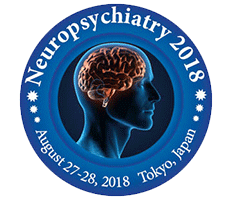
Pawan Rajpal
10 Harley Street London, UK
Title: Executive Function deficits in Neuro developmental disorders and Chronic Mental illness
Biography
Biography: Pawan Rajpal
Abstract
Neuro Developmental disorders, (NDD) including Autism/Asperger’s (ASD) and Attention Deficit Hyperactivity Disorder (ADHD), have deficits described either in Social communication/interaction/imagination, or in attention/concentration/hyperactivity/impulsivity. There is significant co morbidity, from 30% to 50%. The common symptoms occur in almost all, however in about â…“ to ½ cases fulfil criteria for more than one diagnosis.
Mental illnesses like Depression, Anxiety, psychosis, which could be part of Schizophrenia or Bipolar, can become chronic, in about more than half the cases even with best treatment and best compliance.
These complex cases are often associated with Executive function deficits. It is these that continue to cause morbidity for life long. It is also these that are given least attention or support, leaving our patients with burden that they continue to carry.
EFD is a term used to describe cognitive processes that help individual regulate, control and manage out thoughts and actions. It includes planning, working memory, attention, problem solving, verbal reasoning, inhibition, cognitive flexibility, initiation of actions and monitoring of actions. Though the EFD are not a part of diagnostic criteria, in NDD diagnosis or count as diagnostic issues when diagnosing mental illness chronicity, it’s these deficits that cause the most morbidity in day-to-day living.
The lack of behaviour flexibility, poor emotional control, decreased ability of self-monitoring, can the basis of either initial presentation, or the cause of relapse. For clients who eventually get a diagnosis of NDD, Environment adaptations are advised, of the need for routine, structure and predictability, however little is provided for supporting the EFD’s, that a person is struggling with.
Just focusing on core deficits in ASD or ADHD, or mood variations, and psychotic symptoms of mental illness, does not enhance the quality of life or the the outcomes. Identifying the exact set of EFD’s, will allow for developing specific adaptations, to enhance the quality of life, for children, students and adults.

